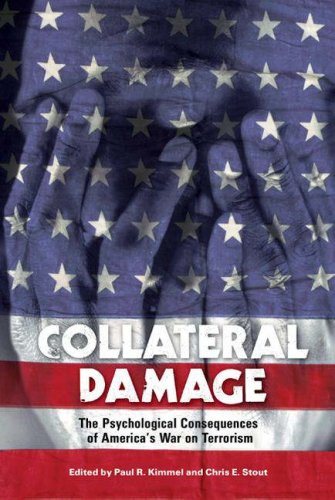

Most ebook files are in PDF format, so you can easily read them using various software such as Foxit Reader or directly on the Google Chrome browser.
Some ebook files are released by publishers in other formats such as .awz, .mobi, .epub, .fb2, etc. You may need to install specific software to read these formats on mobile/PC, such as Calibre.
Please read the tutorial at this link. https://ebooknice.com/page/post?id=faq
We offer FREE conversion to the popular formats you request; however, this may take some time. Therefore, right after payment, please email us, and we will try to provide the service as quickly as possible.
For some exceptional file formats or broken links (if any), please refrain from opening any disputes. Instead, email us first, and we will try to assist within a maximum of 6 hours.
EbookNice Team

Status:
Available5.0
30 reviewsColor-coded terrorism alerts are issued, then lifted with no explanation. False alarms can, like crying wolf, desensitize people to a real need to be on alert. And that psychic numbing is just one effect discussed in this book by fifteen psychologists teamed up to take a critical look at the U.S. war on terrorism. These experts are led by the Chairman of an American Psychological Association task force charged with pinpointing the effect of our anti-terrorism efforts on American mental health. Together, they present the most up-to-date and intriguing picture we have of the fallout on our own people from our own programs. The text spotlights stereotyping of foreigners, increased domestic hate crimes, fear, depression and helplessness, as well as increased militancy and belligerence, especially among students. Perhaps most disturbing in the land of the free, we also see increasing acceptance of restrictions on our personal freedoms, and acceptance of human rights violations.
Color-coded terrorism alerts are issued, then lifted with no explanation. False alarms can, like crying wolf, desensitize people to a real need to be on alert. And that psychic numbing is just one effect discussed in this book by fifteen psychologists teamed up for a critical look at the U.S. war on terrorism. These experts are led by the Chairman of the American Psychological Association task force charged with pinpointing the effect of our anti-terrorism efforts on America's mental health. Together, they present the most up-to-date and intriguing picture we have of the fallout on our own people from our own programs. The text spotlights fueled stereotyping of foreigners, increased domestic hate crimes, fear, depression and helplessness, as well as increasing militancy and belligerence, especially among students. Perhaps most disturbing in the land of the free, our attention is drawn to growing acceptance of restrictions on our personal freedoms, and acceptance of human rights violations.
Contributors to this collection aim to give us a reality check, looking at what our national reactions to terrorism have been, how those reactions have affected the psyche of our people and whether this has made us stronger or weaker, and more or less likely to be the target for future attacks.